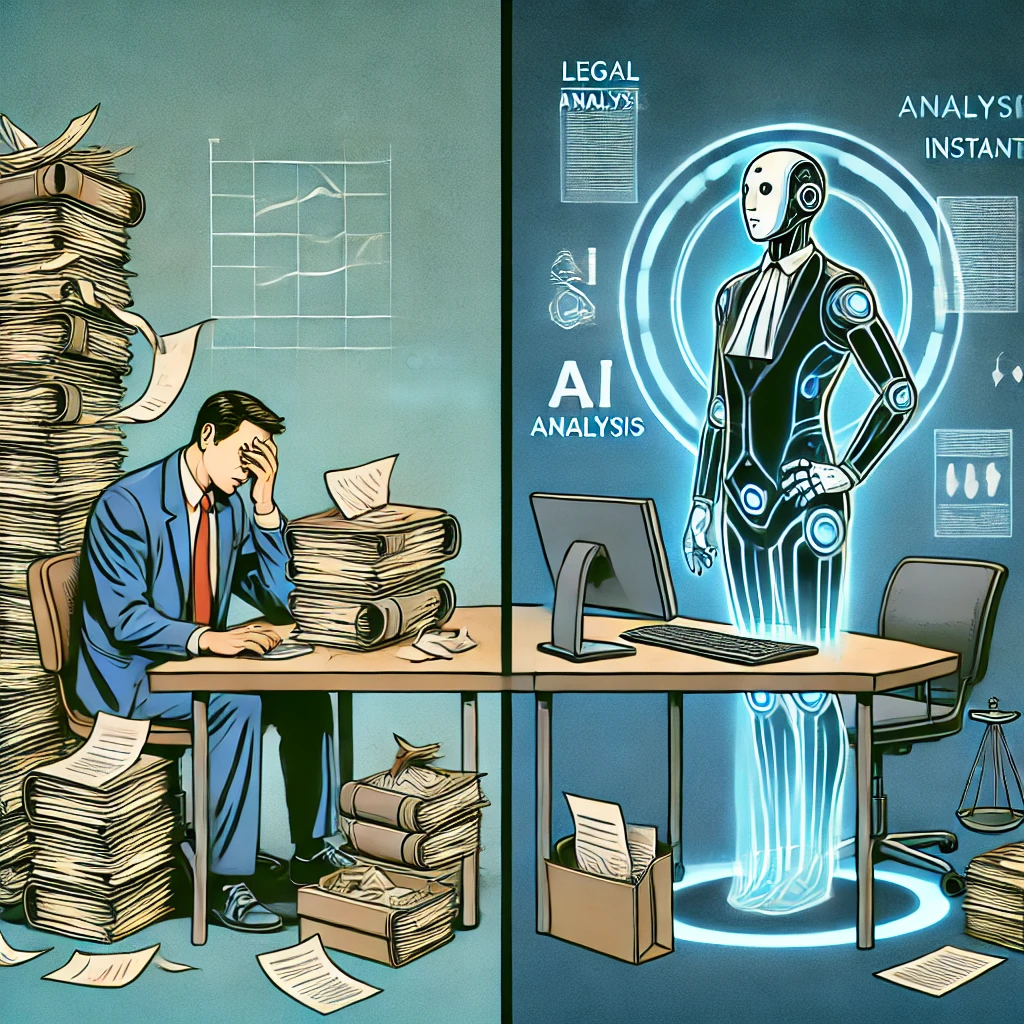The legal world is full of tradition, slow-moving courts, and a deep resistance to change. Fax machines are still kicking. Some judges refuse to check their email. Meanwhile, law firms are drowning in case law, trying to parse through decades of decisions to craft persuasive arguments. This is exactly where artificial intelligence is making waves. AI is the future of case briefing, and the firms that embrace it now will dominate the industry in the next decade.

AI Is the Future—Because Time Is Money
Ask any lawyer what takes the most time, and case research will be high on the list—sifting through legal precedents, analyzing judicial opinions, and crafting arguments used to mean weeks of work. Now? AI tools can process a judge’s entire decision history in minutes, highlighting key patterns that would take a human hundreds of hours to uncover.
At ClearwayLaw, we’ve been using AI-powered legal analytics for five months. The difference? Night and day. Our system combs through rulings and picks up on language judges tend to favour. It flags how often a judge rules in favour of certain arguments. It even predicts which legal precedents are most persuasive to a particular court. That means we’re not just crafting stronger arguments—we’re crafting arguments strategically designed for the person making the decision.
For example, we recently analyzed a judge with a history of leaning toward plaintiffs in employment discrimination cases. The AI identified that this judge frequently referenced three key precedents in their decisions. Armed with that insight, we focused heavily on those cases in our brief—and the case settled in our favour faster than expected. That’s not luck. That’s a data-driven strategy.
AI is the Future—And Caseway.ai is Leading the Charge
For years, AI in legal research was something only the biggest firms could afford. That’s changing fast. Platforms like Caseway.ai are making AI-powered case briefing accessible to lawyers at every level, from solo practitioners to mid-sized firms looking to compete with industry giants.
Traditional legal research means hours—sometimes days—of sifting through databases, trying to find relevant case law.
One of the biggest advantages? Speed and precision. Unlike manual research, which relies on a lawyer’s ability to think of the right search terms, AI-driven tools like Caseway.ai can search across thousands of cases almost instantly. AI ensures lawyers have access to insights that give them an edge in court.
Caseway.ai represents a shift in how legal professionals approach case briefing. AI is the future of legal research, and firms that embrace it now will be ahead of the curve as technology continues to reshape the legal landscape.
Courts Are Falling Behind—And It’s Hurting the System
Despite AI transforming case research for private firms, the courts themselves are stuck in the past. Many still rely on physical filings, faxed documents, and manual case law reviews. In 2020, the COVID-19 pandemic forced courts to adopt virtual hearings. But once the crisis passed, many went right back to the old ways.
That hesitation isn’t just inefficient—it’s actively harming access to justice. If legal AI can spot judicial biases in real-time, courts should be using it to correct those biases. Instead, the burden is on lawyers to exploit them. AI could help decision-makers recognize when their rulings show patterns of racial, gender, or economic bias, but most judicial bodies aren’t even considering these tools.
The Canadian Judicial Council, for example, still relies mostly on individual complaints to assess a judge’s conduct. AI could analyze thousands of rulings at once to detect systemic issues. Yet, no major court in Canada has adopted AI for this purpose. That means biased rulings continue unchecked unless someone takes the time to challenge them—a process that’s out of reach for most self-represented litigants.
AI is the Future—Law Firms That Ignore It Will Struggle
Like it or not, AI is already changing how legal work gets done. The firms using AI-powered case briefing aren’t just saving time; they’re winning more cases. And as the technology improves, the gap between AI-savvy firms and old-school practices will only widen.
Some lawyers argue that using AI to analyze judicial tendencies is unethical. But let’s be honest—lawyers have always tailored arguments to fit a judge’s known preferences. A veteran criminal lawyer knows which judges are more receptive to systemic discrimination arguments. A family lawyer knows which judge leans toward maternal custody arrangements. The difference is that before AI, this knowledge was anecdotal. Now, it’s data-backed.
Law firms that fail to adapt will find themselves at a serious disadvantage. In a decade, AI-powered legal research won’t just be an advantage—it’ll be the bare minimum. Courts and administrative bodies need to catch up, or they’ll risk creating an even greater imbalance between well-funded firms and those that can’t afford to exploit these tools.
For now, one thing is clear: AI is the future of legal case briefing. The only question is whether you’re ahead of the curve—or falling behind.
Author: Daniel Kerrington
Bio: Daniel Kerrington is a legal tech consultant and former litigation attorney specializing in AI-driven legal research and case strategy.

